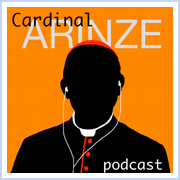Here is an article written, not be a theologian, but by a co-founder of a 'constitutional think tank'. This man is quick to criticize the Church and Bishop Smith of Trenton, NJ for upholding and protecting the sanctity of the Holy Eucharist. As you may recall, this story began with the problem of a young girl who suffers from some form of celiac disease and was given a communion wafer made of rice rather than wheat - and, of course, this was rightly declared to be invalid.
Now comes John R. Stoeffler, the author of this St. Louis Post Dispatch article, who equates the position of the Church with that of the pharisees for being 'legalistic'. He states:
For me this doctrine [the Holy Eucharist] is clearly based on legalism that has more in common with the pharisees Jesus encountered than that of the Good Samaritan.
For one who understands what a sacrament is, this should be no problem. It is no more 'legalistic' than any of the 10 Commandments. As you may know, simply stated, a sacrament is an outward sign, instituted by Christ, to give grace [Baltimore Catechism]. Or as the new Catechism indicates: The sacraments are efficacious signs of grace, instituted by Christ and entrusted to the Church, by which divine life is dispensed to us (CCC 1131).
But there is more to be said of the Holy Eucharist which Mr. Stoeffler does not understand when he states:
The origin of the Eucharist began at the Last Super when Jesus shared bread and wine with his disciples. The bread was symbolic of Jesus' body, and the wine that of his shed blood. In distributing the bread and wine to his disciples Jesus told them to "do this in rememberance of me." (Luke 22:19) What eight-year-old Haley Waldman and all who participate in the celebration of the Last Supper were doing was honoring Jesus by keeping his charge.
Faithful Catholics understand that there the bread and the wine are not merely symbolic of Jesus' body and blood, but actually and truly become the very body, blood, soul and divinity of our Saviour by the power of the Holy Spirit. This has been the teaching of the Church from the very beginning - it is not some mere 'honoring of Jesus by keeping His charge'. Jesus said, "This IS My Body, this IS My Blood." Nowhere in the New Testament or in the writings of the Early Church Fathers is there any mention of a merely symbolic nature to this august mystery.
As the Sacraments were instituted by our Lord Himself, the Church does not have the power or authority to change them.
Mr Stoeffler finishes by stating:
If the Catholic Church has a problem with Haley Waldman's physical restriction I know there are other Christian denominations whose members would take a sincere interest in her physical concerns and spiritual well being and welcome her with open arms.
The insinuation that the Catholic Church has a problem with the little girl's disease is disingenuous and represents a complete lack of understanding of the Church. Catholics certainly sympathize with those who suffer from the disease and the Church does allow low-gluten hosts to be used. The Church also permits the communicant to receive the Body and Blood of our Lord under the species of wine.
While other Christian communities might well accept Haley with open arms, the fact remains that these other Christian communities cannot offer her what the Church established by Jesus Christ can offer - the real, true and substantial Body and Blood of our Lord contained in the Most Holy Eucharist.
Article.









